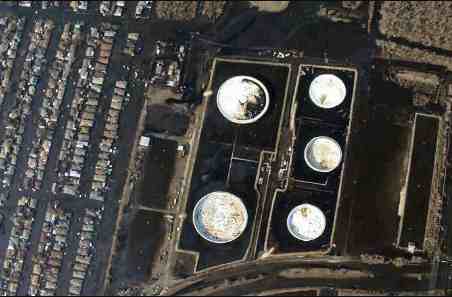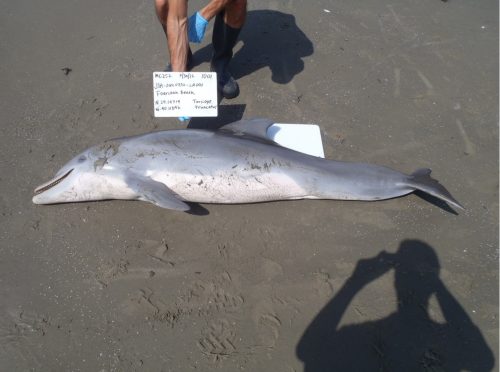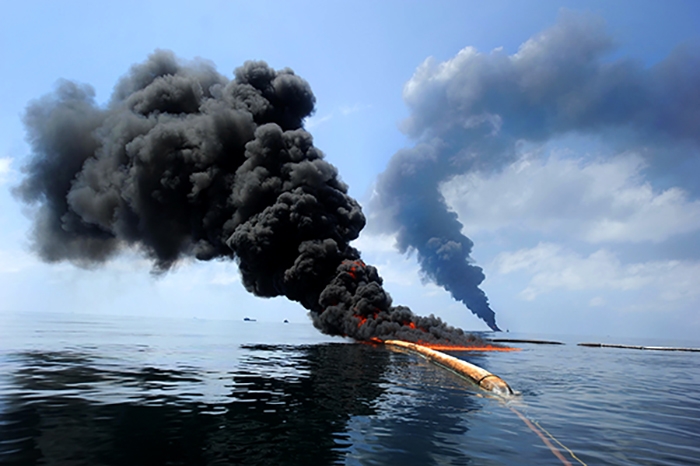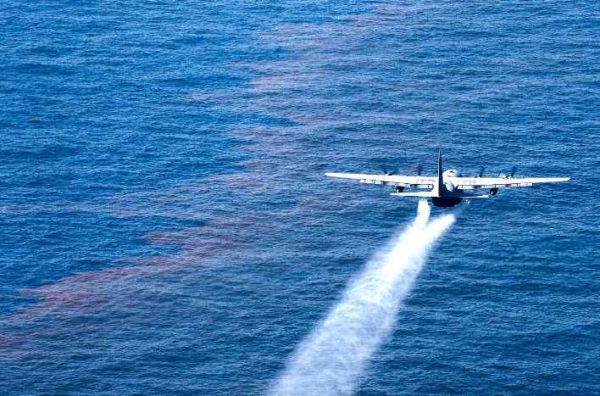It has been two years since BP's Deepwater Horizon accident that took the lives of 11 of its crew and sank into the Gulf of Mexico, gushing oil into the environment for 87 days. Yesterday, former members of the now dissolved commission created by President Obama in the aftermath of the disaster released a report.
After the BP spill occurred, President Obama established the National Commisssion on the BP Deepwater Horizon Oil Spill and Off-Shore Drilling. It was this commission’s job to find the cause of the accident and to recommend steps to make off-shore drilling safer. That commission released its final report in January of last year and then disbanded two months later. That report contained many recommendations focused on making off-shore energy production safer as well as improving the country’s ability to respond to spills when they do occur.
From that disbanded commission sprang another, manned by former members of the original, which was created by Obama. This group has named itself the Oil Spill Commission Action. It is populated by, among others, former Senator from Florida Bob Graham and William K,. Reilly, former commission co-chairs, and Frances Beinacke, Donald F. Boesch, Terry D. Garcia, Cherry A. Murray, and Fran Ulmer, all former commission members.
This commission, funded with support from the Walton Family Foundation, has a staff of one and the members volunteer their time.
This new private commission, began by praising the Department of the Interior for its progress in implementing many of the recommendations of the former commission, but quickly critisized congress for not taking steps to codify the changes made by the department.
The commission also pointed out the slow start of the Center for Offshore Safety by the industry, but still praised its leadership and stated that that Center “holds promise of helping to ensure that the firms involved in offshore drilling perform at the top of their game.” It stated that the Center should become completely independent however.
The commission continued to express its disappointment to the inaction of Congress in regards to off-shore management, saying, “It is unfortunate that two years after the worst oil spill in U.S. history, Congress has yet to take action to bolster the government’s program for managing offshore activities.” The report continued, saying, “In the current session neither branch of Congress has acted upon legislation that would implement the Commission’s recommendations. Indeed, the House has passed several bills containing provisions, such as requirements that extensive offshore areas be leased without adequate review, that actually run contrary to what the Commission concluded was essential for safe, prudent, responsible development of offshore oilresources.”
Beyond this initial chapter of the report, the commission report also has chapters on Spill Response and Containment, Impacts and Restoration, Ensuring Adequate Resources, and Frontier Areas-The Arctic.
Of the Arctic, the Commission stated, “The Arctic is a region that poses special challenges and opportunities; the region is both vulnerable and valuable, and requires intensified planning and preparation. Although a great deal of Arctic research has been undertaken over the last several decades, many central unanswered questions remain about the unique and complex ecosystems, and how climate change is impacting those systems.”
For the Arctic, the Commission pointed out several items that action should be taken on in the coming year, those are:
- Expanding and funding the research necessary to adequately characterize environmental conditions in the Arctic areas where new drilling is anticipated;
- Conducting additional research on and industry demonstration of the ability to prevent, respond to, contain and clean-up an oil spill in Arctic conditions;
- Establishing a regional citizens council for Arctic and Subarctic offshore planning decisions;
- Promoting the international adoption of standards and procedures for spill prevention and response in order to safeguard the fragile Arctic regions; and,
The full report from the Oil Spill Commission Action can be read here.
Alaska Senator Murkowski and Louisiana Senator Mary Landrieu issued comments in response to the Oil Spill Commission Action report. Although they mis-identified the report as a report from the original commission created by President Obama, they made these statements:
“We understand some of the commission’s frustrations with Congress, and share its desire to ensure safe and responsible energy production,” Murkowski and Landrieu said. “Industry has undertaken a significant amount of safety reforms since the Deepwater Horizon spill and the Senate developed legislation last August codifying the changes requested by the administration. That bill, the Outer Continental Shelf Reform Act, was referred to the Senate Energy and Natural Resources Committee eight months ago.
“A bipartisan majority in the Energy Committee and the full Senate would be happy to pass commonsense legislation addressing new production, safety and a fair share of revenue for the affected states. Unfortunately, a small number of senators are opposed to engaging in a debate that includes revenue sharing.
“As representatives of coastal states that produce the energy Americans depend on, we feel new production and revenue sharing are integral to coastal states’ ability to develop and maintain emergency response capabilities and critical infrastructure while also protecting the environment. These are fundamental issues of equity and fairness that deserve Congress’ attention as part of any serious conversation about energy policy.
“We must acknowledge the essential relationship between safety and the nation’s need for greater energy production. Our shared goal is to have safe production, so we must consider the states that provide the airfields, docks, roads, navigation channels and other infrastructure that make offshore production possible. We believe it’s long past time we provide coastal states with a fair share of the revenue from oil and gas produced off their shores.”
The Commission report gave Congress a “D” in its report.






